HISTORY BOY
Thomas Eller made a huge noise for the deaf community in Tokyo. He tells MAJORS about his special day
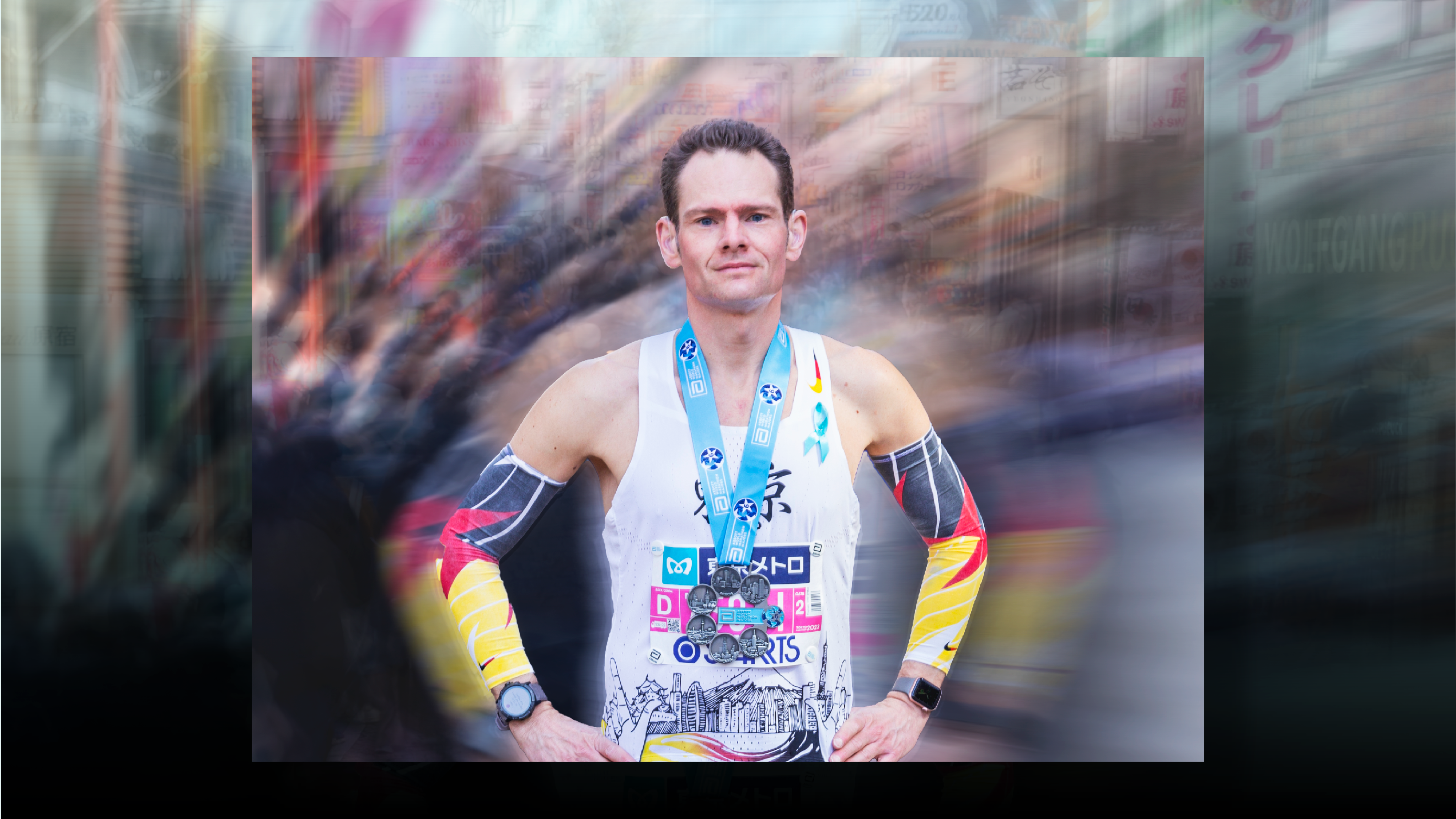
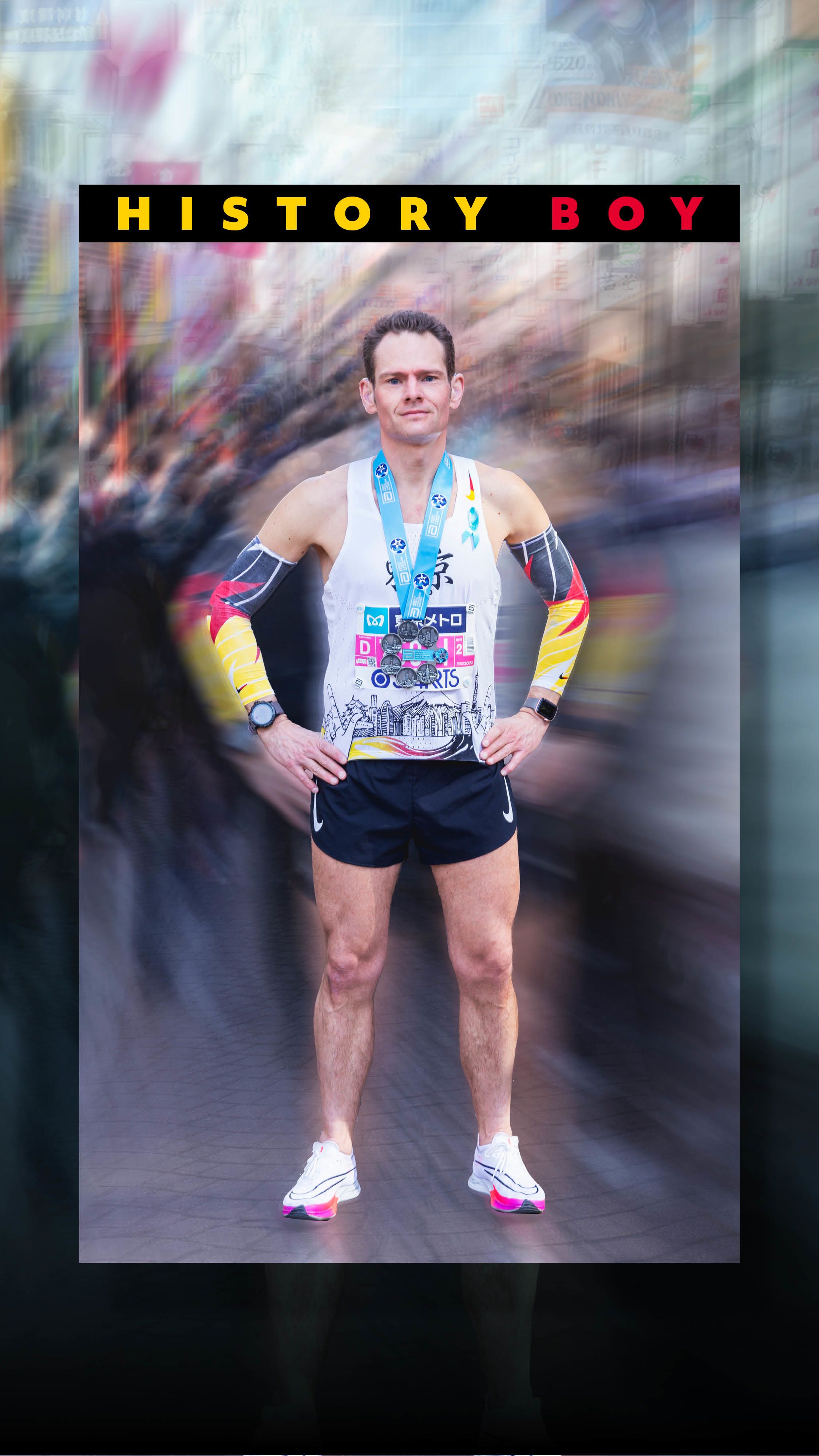
Thomas Eller made a huge noise for the deaf community in Tokyo. He tells MAJORS about his special day
A little after midday, just yards away from the manicured lawns of the Imperial Palace Gardens, a runner took his final step over the timing mats of the Tokyo Marathon.
It was a step that signaled the end of his Six Star journey, just as it did for more than 3,000 others that day. But this meant so much more to him and the community he was running for.
Thomas Eller didn’t take many more steps before he folded into his friend’s arms and the tears began to flow.
The 43-year-old from Essen in Germany had just become the first deaf-born runner to achieve the feat. The emotion of the moment as he crossed the line had finally caught up with him.
Thomas had first reached out to the AbbottWMM team way back in January 2020, explaining how his job as a teacher in a deaf school and his passion for the marathon put him in a position to inspire the children he taught.
He wanted to show them that any barriers they perceived as standing in the way between them and a fulfilling life could be overcome. If he could bring them back a Six Star Medal, he knew how powerful it could be in showing them what can be done despite their disability.
“So many parents come to me and say that I am a big inspiration for them and their kids. Running a marathon gives you the feeling to be equal with others - no matter which disability, race or sex you have,” he wrote.
It had been a fast road to the brink of his Six Star Medal up to that point. Having run his first marathon in Petra in 2018, Thomas made fast work of four of the Majors in 2019, completing Berlin, London, Chicago and New York City that year.
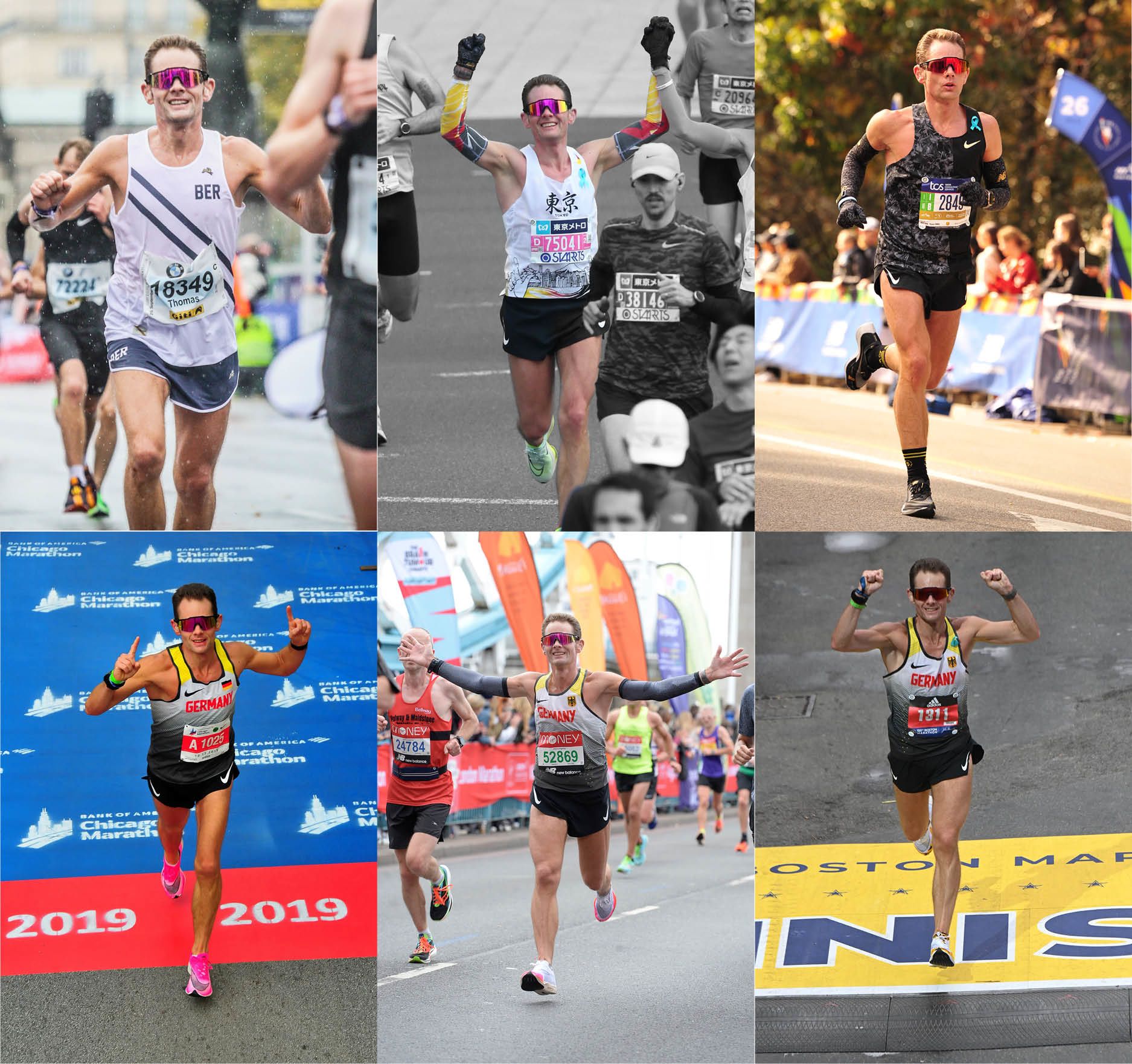
He was due to become a Six Star Finisher in the spring of 2020, aiming to complete Tokyo for his fifth star that March and then earn his medal at the finish line of the Boston Marathon.
Those plans were ripped apart by the pandemic, and the order of his Majors was shuffled.
In 2021 he made it to Boston on a national athlete exemption to earn star No. 5, but the wait for Tokyo went on.
Finally, with travel restrictions lifted, 2023 would be the year; the chance to finish his journey, and bring that medal back to the classroom.
As the country continued to be watchful over the risks of the COVID-19 virus, there were several extra measures runners were asked to take as part of their trip to Tokyo for the marathon, including regular temperature checks in the week before the race and additional tests for the virus that would have to be shown before entering their start corrals.
“It took me three years to participate in this marathon and I was so afraid my test would become positive and the organizers would refuse me!” says Thomas.
If the anxiety around the additional measures was something everyone had to deal with, for a deaf person, there are many more hurdles to overcome that are simply invisible to the hearing community.
“The most challenging thing for me was the transportation system in Tokyo to get around the city or to the expo,” he says.
“Most signs were in Japanese. I often got lost when I had to change trains because I couldn’t find the correct connection. As a deaf person it was challenging for me not to hear the loudspeaker announcements in some buildings or when walking around Tokyo. I often had to ask people what the message of the loudspeaker announcements were.
“Face masks were pretty challenging for me, too, because I read from the lips and I had to remind people to remove their face masks because I’m deaf. All of them were so kind to do that so I could communicate with them.”
Spend any time with Thomas during a Majors race week, though, and you soon realize there are runners at every turn who know him, know his story and are willing to help if he needs it. As he moved around the Tokyo Marathon expo halls, countless well-wishers stopped for hugs and selfies. Elite athletes have garnered less attention than the man known on Instagram as @deafworldrunnertom
Traveling with his good friend Kevin was a huge help. “We met each other at the Berlin Marathon in 2019 for the first time and I travel to all the races with him,” he says. “He gives me the feeling I am such a normal person. He doesn’t care about my disability.
“I was more impressed by his ability as an athlete, than anything else,” says Kevin. “For someone who ran his first marathon close to four hours, to then improve by almost an hour, I thought, ‘this is an exceptional athlete’. Not only does he have a disability, he is determined to go one better.”
Once race day arrived and the final start corral checks were negotiated, all that stood between Thomas and his ambition were 26.2 miles.
“When I arrived at the gate I was very surprised how efficient and precise the staff and volunteers were and I couldn’t see any lines. It went very smoothly,” he says.
“Everyone there was in a very good mood and this helped to calm my nerves. The atmosphere was fantastic! So many runners and people recognized me from social media, and I stopped several times for a picture with them. It was such a big pleasure meeting them and sharing the excitement together.”
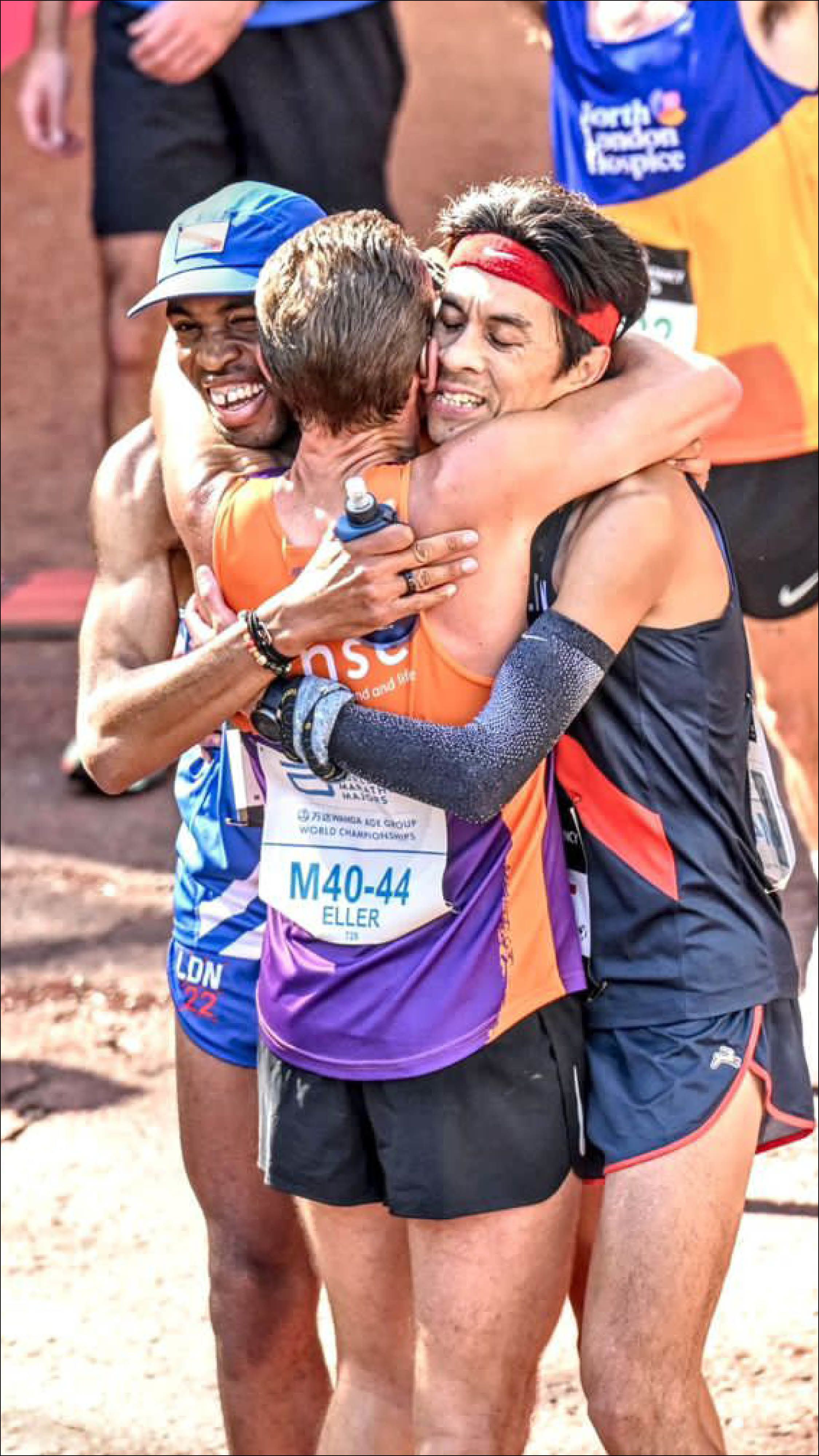
A little after midday, just yards away from the manicured lawns of the Imperial Palace Gardens, a runner took his final step over the timing mats of the Tokyo Marathon.
It was a step that signaled the end of his Six Star journey, just as it did for more than 3,000 others that day. But this meant so much more to him and the community he was running for.
Thomas Eller didn’t take many more steps before he folded into his friend’s arms and the tears began to flow.
The 43-year-old from Essen in Germany had just become the first deaf-born runner to achieve the feat. The emotion of the moment as he crossed the line had finally caught up with him.
Thomas had first reached out to the AbbottWMM team way back in January 2020, explaining how his job as a teacher in a deaf school and his passion for the marathon put him in a position to inspire the children he taught.
He wanted to show them that any barriers they perceived as standing in the way between them and a fulfilling life could be overcome. If he could bring them back a Six Star Medal, he knew how powerful it could be in showing them what can be done despite their disability.
“So many parents come to me and say that I am a big inspiration for them and their kids. Running a marathon gives you the feeling to be equal with others - no matter which disability, race or sex you have,” he wrote.
It had been a fast road to the brink of his Six Star Medal up to that point. Having run his first marathon in Petra in 2018, Thomas made fast work of four of the Majors in 2019, completing Berlin, London, Chicago and New York City that year.

He was due to become a Six Star Finisher in the spring of 2020, aiming to complete Tokyo for his fifth star that March and then earn his medal at the finish line of the Boston Marathon.
Those plans were ripped apart by the pandemic, and the order of his Majors was shuffled.
In 2021 he made it to Boston on a national athlete exemption to earn star No. 5, but the wait for Tokyo went on.
Finally, with travel restrictions lifted, 2023 would be the year; the chance to finish his journey, and bring that medal back to the classroom.
As the country continued to be watchful over the risks of the COVID-19 virus, there were several extra measures runners were asked to take as part of their trip to Tokyo for the marathon, including regular temperature checks in the week before the race and additional tests for the virus that would have to be shown before entering their start corrals.
“It took me three years to participate in this marathon and I was so afraid my test would become positive and the organizers would refuse me!” says Thomas.
If the anxiety around the additional measures was something everyone had to deal with, for a deaf person, there are many more hurdles to overcome that are simply invisible to the hearing community.
“The most challenging thing for me was the transportation system in Tokyo to get around the city or to the expo,” he says.
“Most signs were in Japanese. I often got lost when I had to change trains because I couldn’t find the correct connection. As a deaf person it was challenging for me not to hear the loudspeaker announcements in some buildings or when walking around Tokyo. I often had to ask people what the message of the loudspeaker announcements were.
“Face masks were pretty challenging for me, too, because I read from the lips and I had to remind people to remove their face masks because I’m deaf. All of them were so kind to do that so I could communicate with them.”
Spend any time with Thomas during a Majors race week, though, and you soon realize there are runners at every turn who know him, know his story and are willing to help if he needs it. As he moved around the Tokyo Marathon expo halls, countless well-wishers stopped for hugs and selfies. Elite athletes have garnered less attention than the man known on Instagram as @deafworldrunnertom
Traveling with his good friend Kevin was a huge help. “We met each other at the Berlin Marathon in 2019 for the first time and I travel to all the races with him,” he says. “He gives me the feeling I am such a normal person. He doesn’t care about my disability.
“I was more impressed by his ability as an athlete, than anything else,” says Kevin. “For someone who ran his first marathon close to four hours, to then improve by almost an hour, I thought, ‘this is an exceptional athlete’. Not only does he have a disability, he is determined to go one better.”
Once race day arrived and the final start corral checks were negotiated, all that stood between Thomas and his ambition were 26.2 miles.
“When I arrived at the gate I was very surprised how efficient and precise the staff and volunteers were and I couldn’t see any lines. It went very smoothly,” he says.
“Everyone there was in a very good mood and this helped to calm my nerves. The atmosphere was fantastic! So many runners and people recognized me from social media, and I stopped several times for a picture with them. It was such a big pleasure meeting them and sharing the excitement together.”
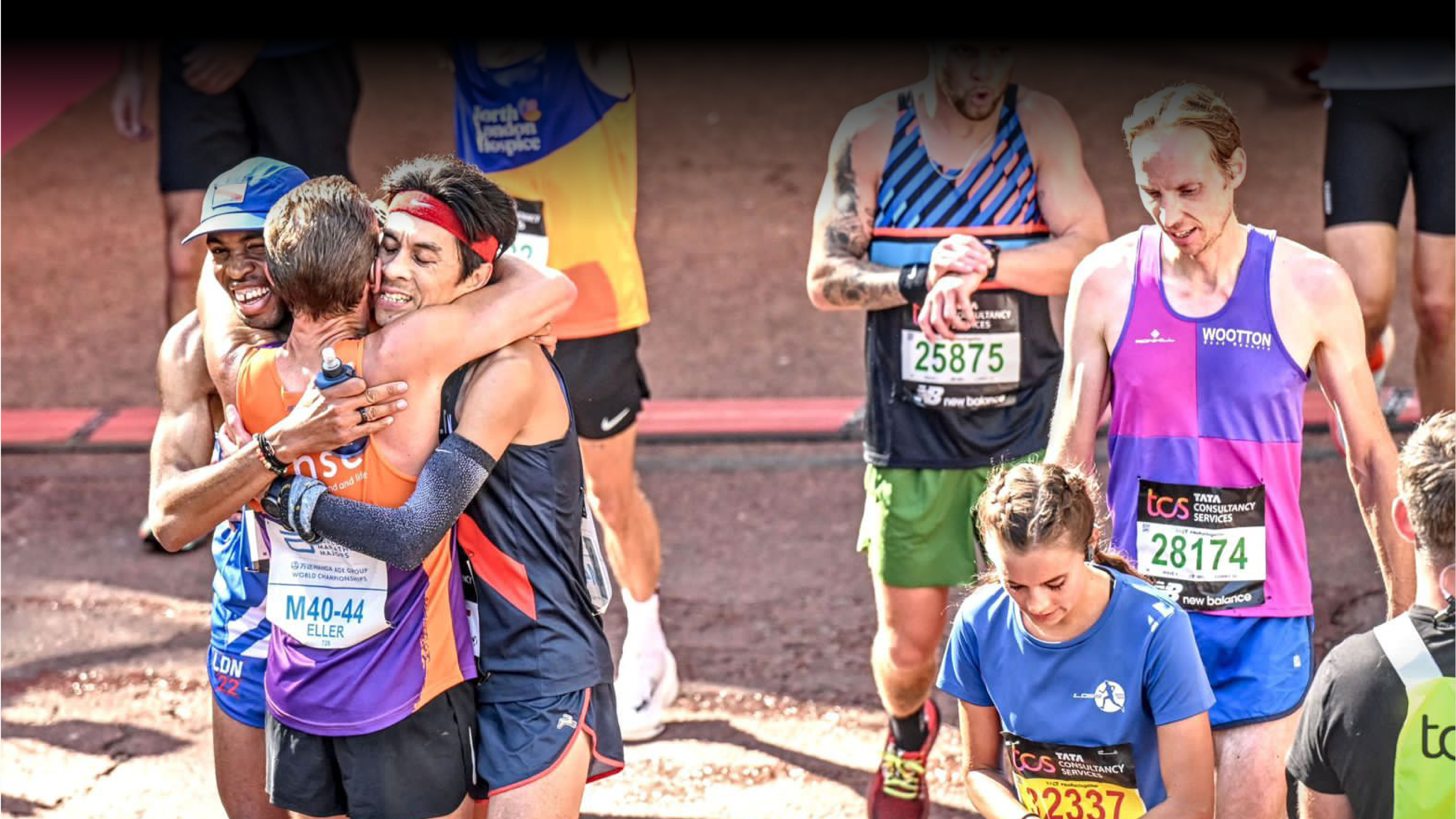
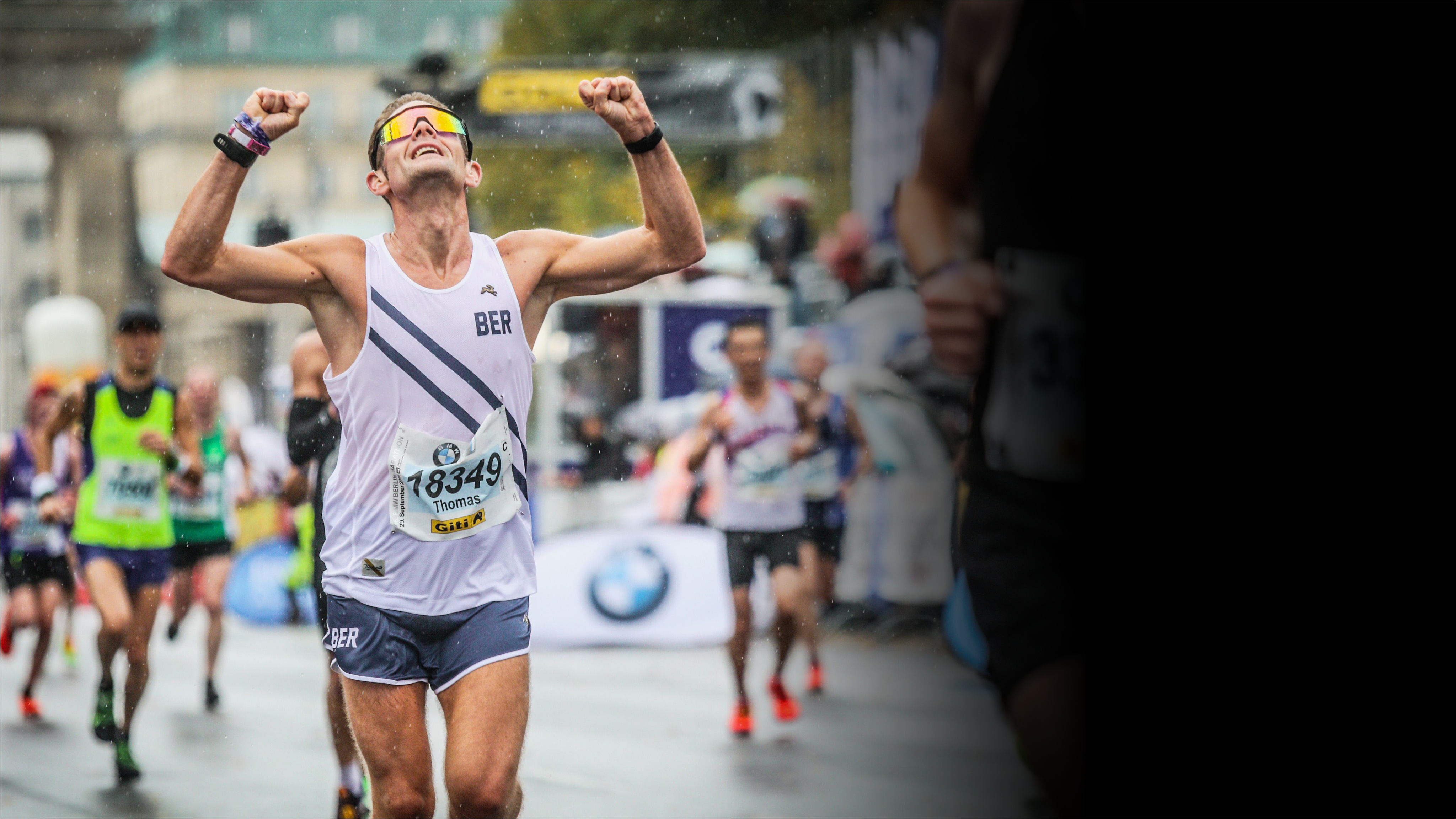
“We are all a running family and it was great seeing my friends on the course. The sights of Tokyo were breathtaking and I had goosebumps all the time. It was like fireworks for my deaf eyes. ”
As Thomas and Kevin got under way, they were carried along on the feel-good factor surrounding them. Runners they passed or who passed them would pause for a fist-bump or just to yell a message of support.
“The crowds were amazing! Everyone was waving to us, I loved the drummers on the course and I could feel their beats with my body. I was starting near the back so I met so many friends on the course when I was running. I hugged them, smiled to them and shared my laughter and joy with them. For me it was important to motivate them and share the experience together.
“We are all a running family and it was great seeing my friends on the course. The sights of Tokyo were breathtaking and I had goosebumps all the time. It was like fireworks for my deaf eyes. Such a beautiful course with amazing crowds and so many turns so you are able to see your friends on the other side of the course.”
As the finish approached, the moment had finally arrived for Thomas.
“It was one of the best finish line moments of my life,” he says. “I finished hand in hand with Kevin, who also got his Six Star Medal.”
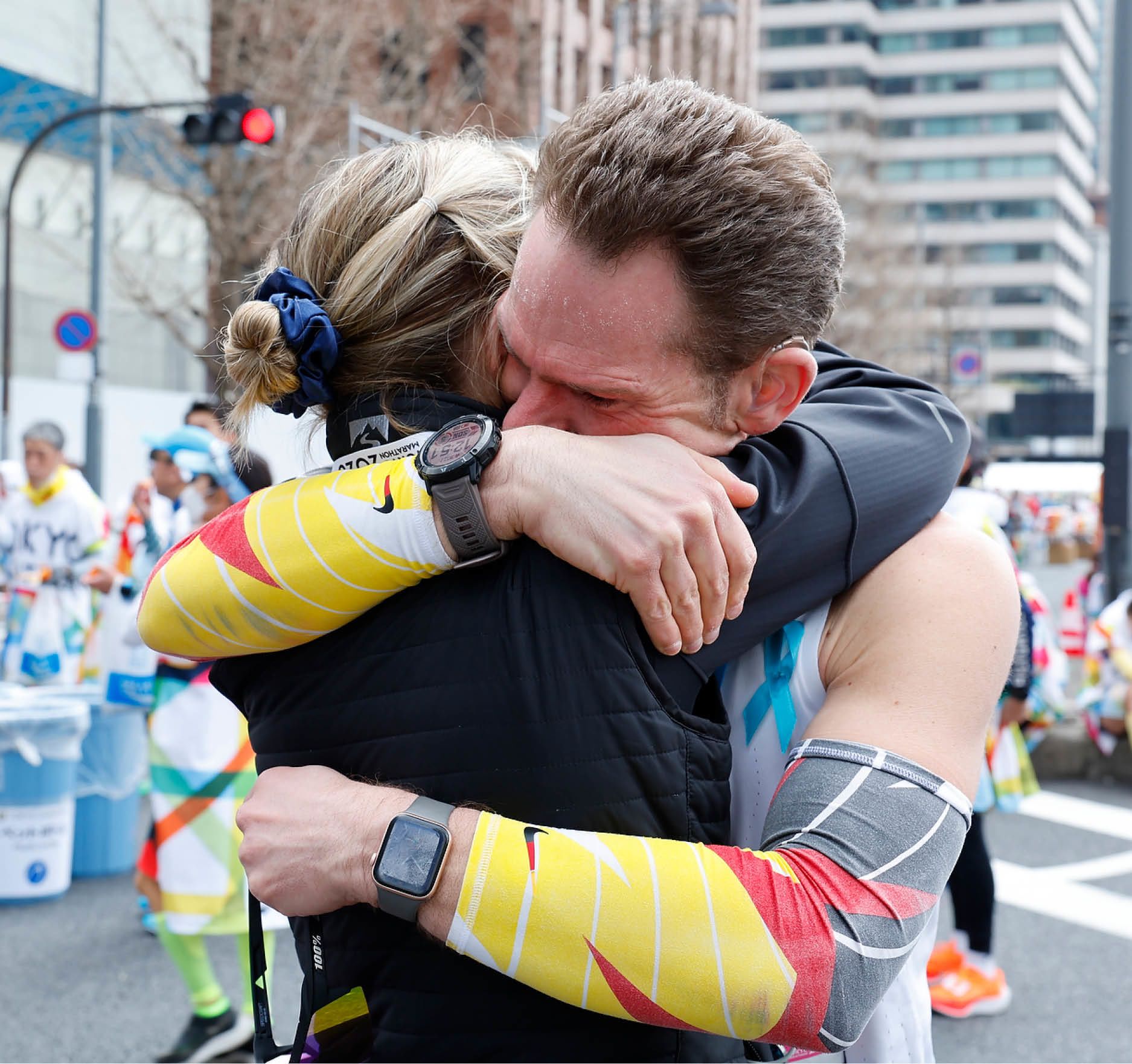
He arrived at the Six Star tent to be greeted by AbbottWMM team members Judee Kakos and Lorna Campbell. It was Lorna who had received his first email more than three years earlier. Now she was hanging the medal around his neck at long last.
“I know how much that meant to him, finally finishing all six, and I’ve got to know him really well over the last few years, so it was a real privilege for me to get to do that for him,” she says.
The medal has already made an appearance back at school and the next target is now locked in.
Thomas plans to run all six Majors this year. There will be fewer runners more popular wherever he goes, perhaps notwithstanding a certain Eliud Kipchoge. The great man’s catchphrase is certainly one that resonates.
“I want to say a huge ‘Thank you” from the bottom of my heart to all the volunteers, staff and organizers of Tokyo Marathon and Abbott World Marathon Majors to make my day very special! No human is limited - even with a disability!”
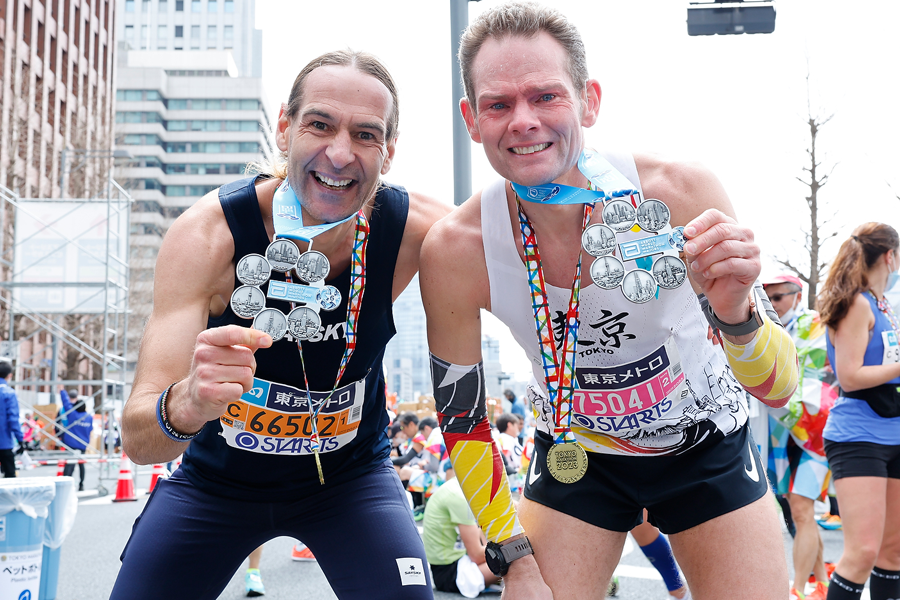
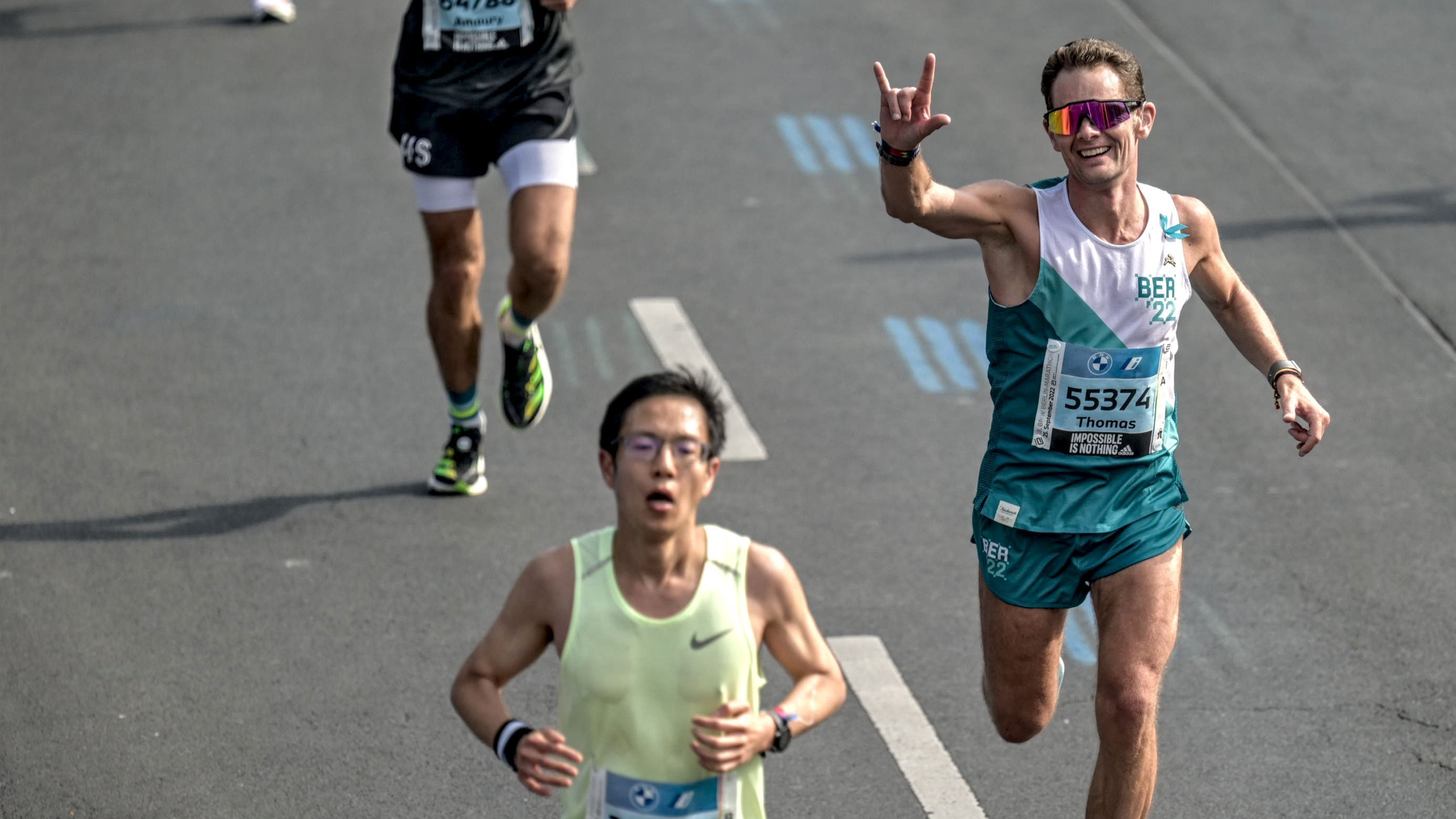
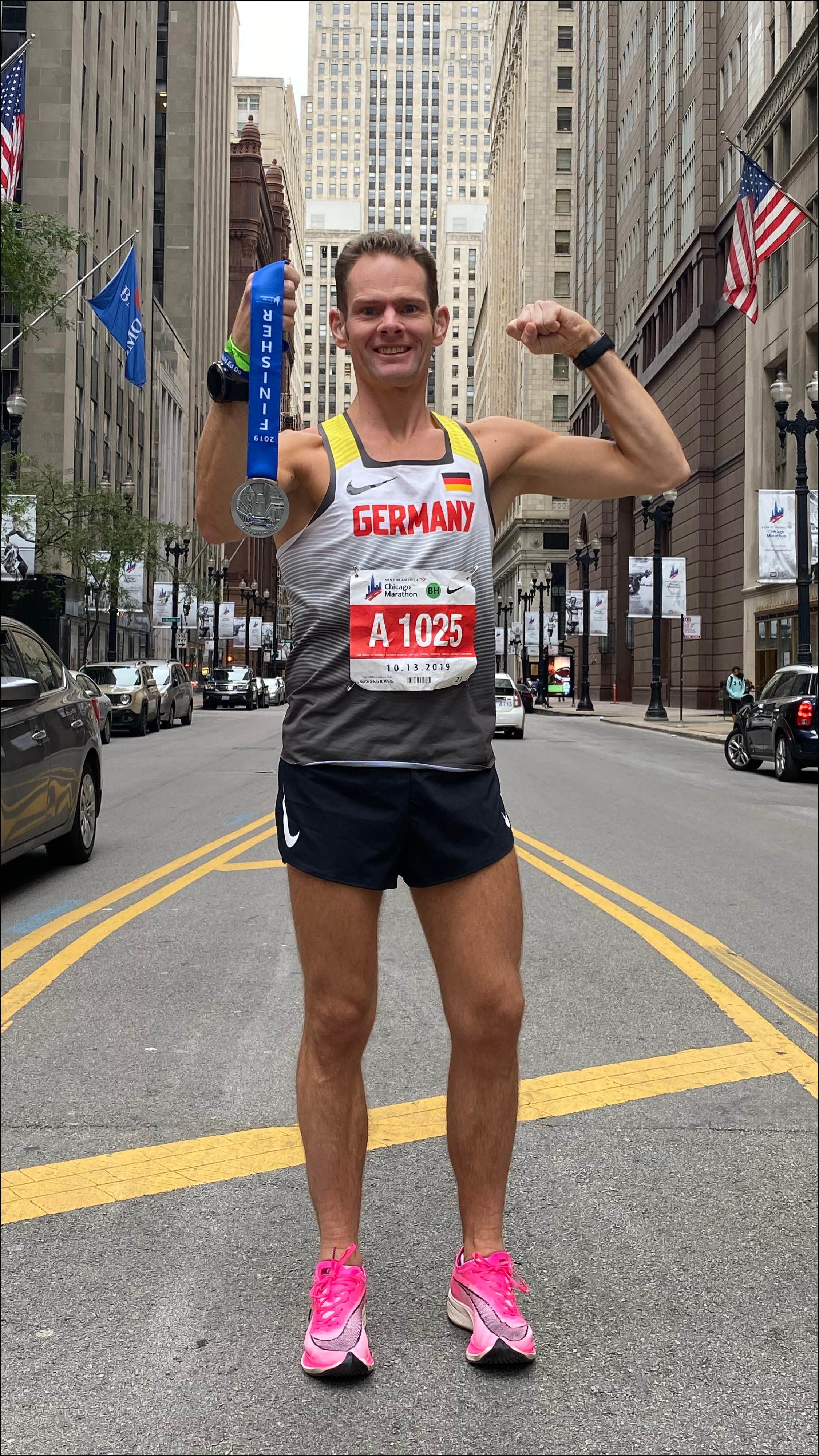
As Thomas and Kevin got under way, they were carried along on the feel-good factor surrounding them. Runners they passed or who passed them would pause for a fist-bump or just to yell a message of support.
“The crowds were amazing! Everyone was waving to us, I loved the drummers on the course and I could feel their beats with my body. I was starting near the back so I met so many friends on the course when I was running. I hugged them, smiled to them and shared my laughter and joy with them. For me it was important to motivate them and share the experience together.
“We are all a running family and it was great seeing my friends on the course. The sights of Tokyo were breathtaking and I had goosebumps all the time. It was like fireworks for my deaf eyes. Such a beautiful course with amazing crowds and so many turns so you are able to see your friends on the other side of the course.”
As the finish approached, the moment had finally arrived for Thomas.
“It was one of the best finish line moments of my life,” he says. “I finished hand in hand with Kevin, who also got his Six Star Medal.”

He arrived at the Six Star tent to be greeted by AbbottWMM team members Judee Kakos and Lorna Campbell. It was Lorna who had received his first email more than three years earlier. Now she was hanging the medal around his neck at long last.
“I know how much that meant to him, finally finishing all six, and I’ve got to know him really well over the last few years, so it was a real privilege for me to get to do that for him,” she says.
The medal has already made an appearance back at school and the next target is now locked in.
Thomas plans to run all six Majors this year. There will be fewer runners more popular wherever he goes, perhaps notwithstanding a certain Eliud Kipchoge. The great man’s catchphrase is certainly one that resonates.
“I want to say a huge ‘Thank you” from the bottom of my heart to all the volunteers, staff and organizers of Tokyo Marathon and Abbott World Marathon Majors to make my day very special! No human is limited - even with a disability!”


